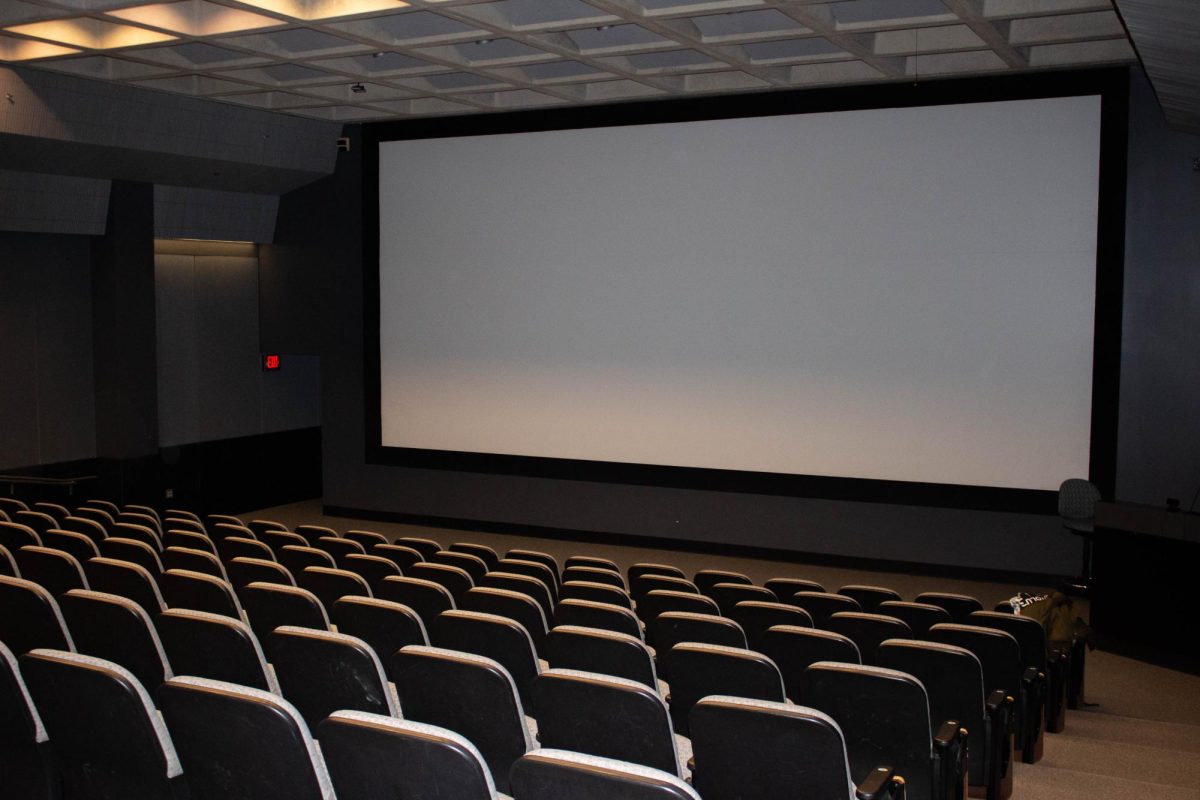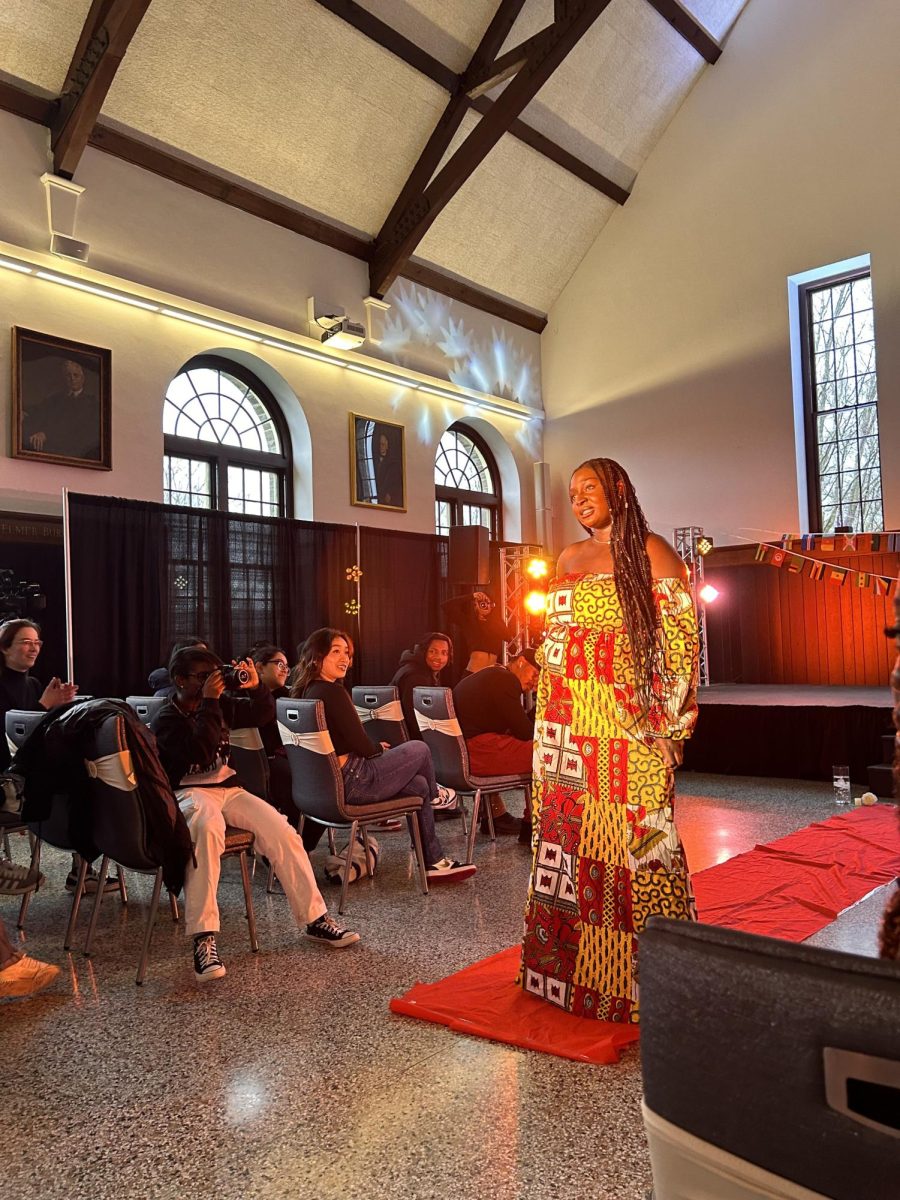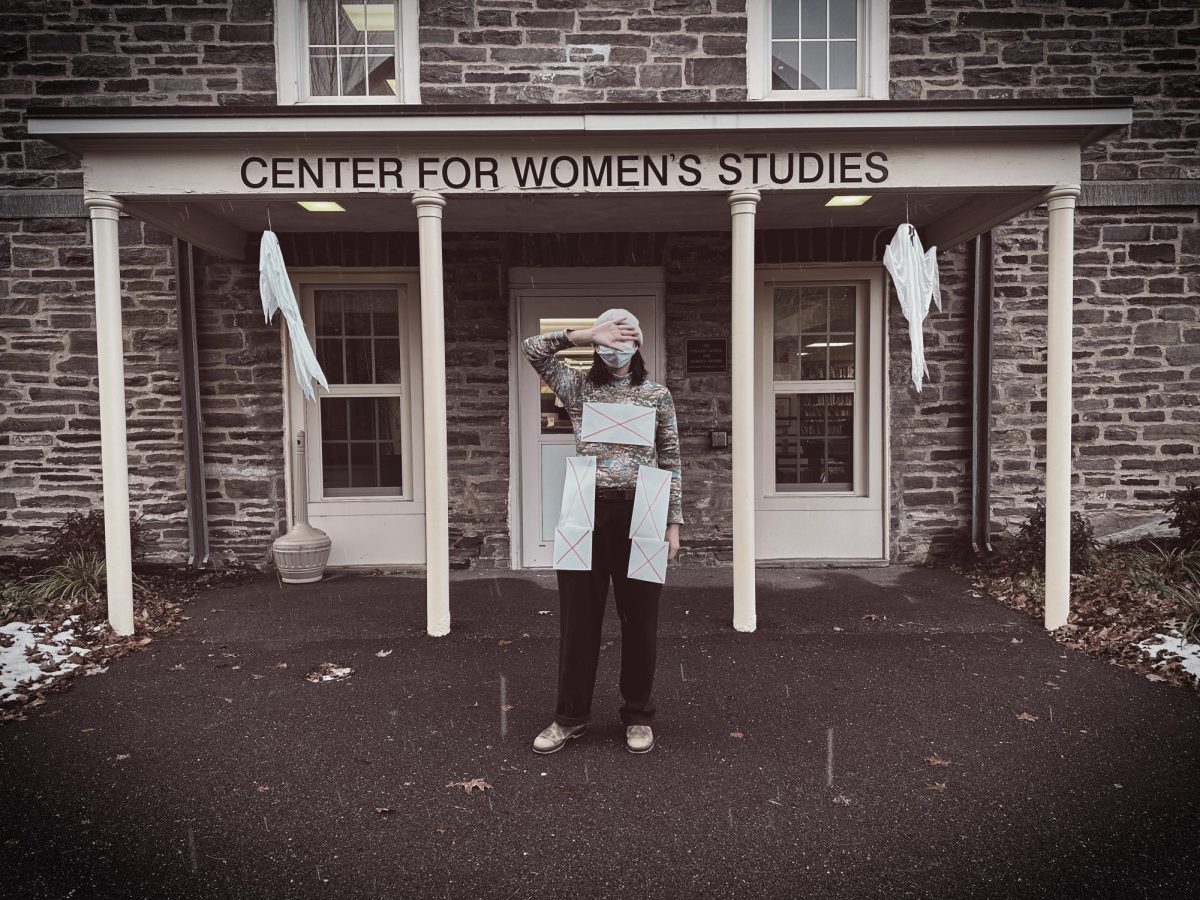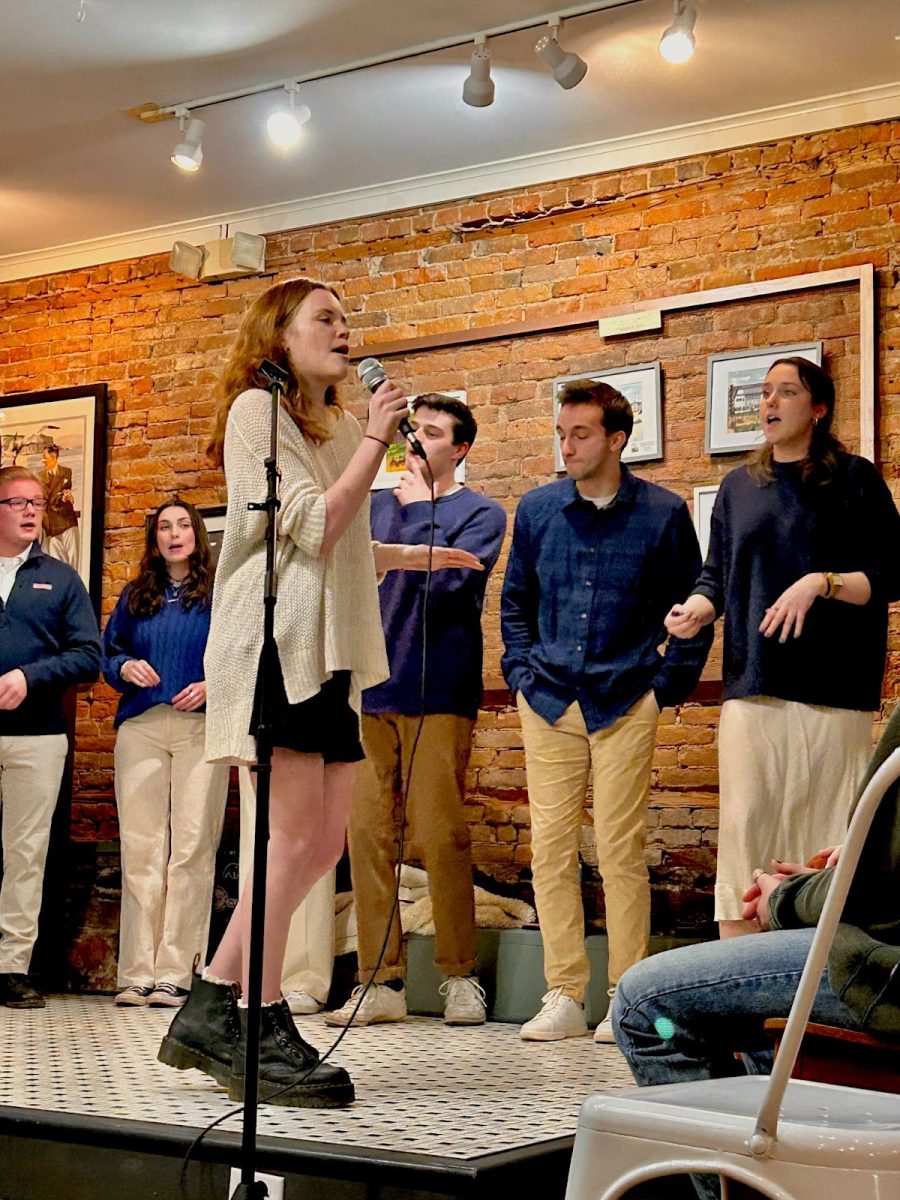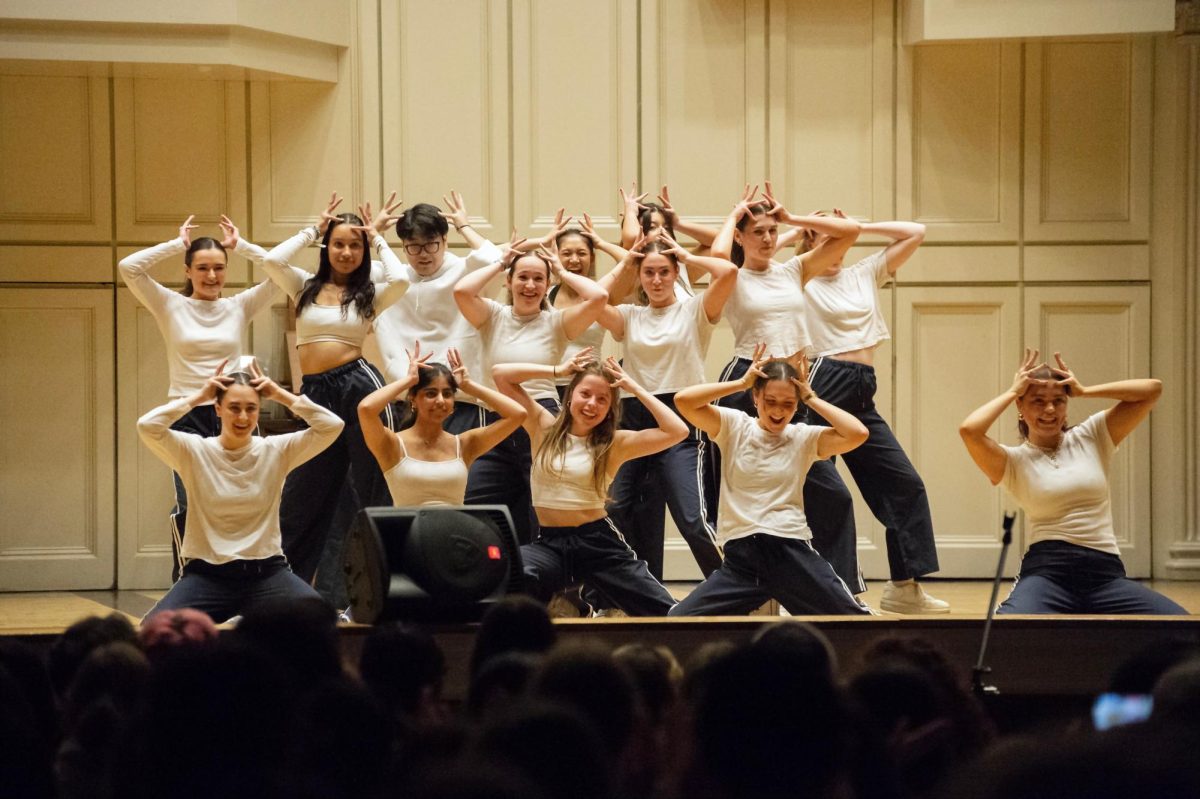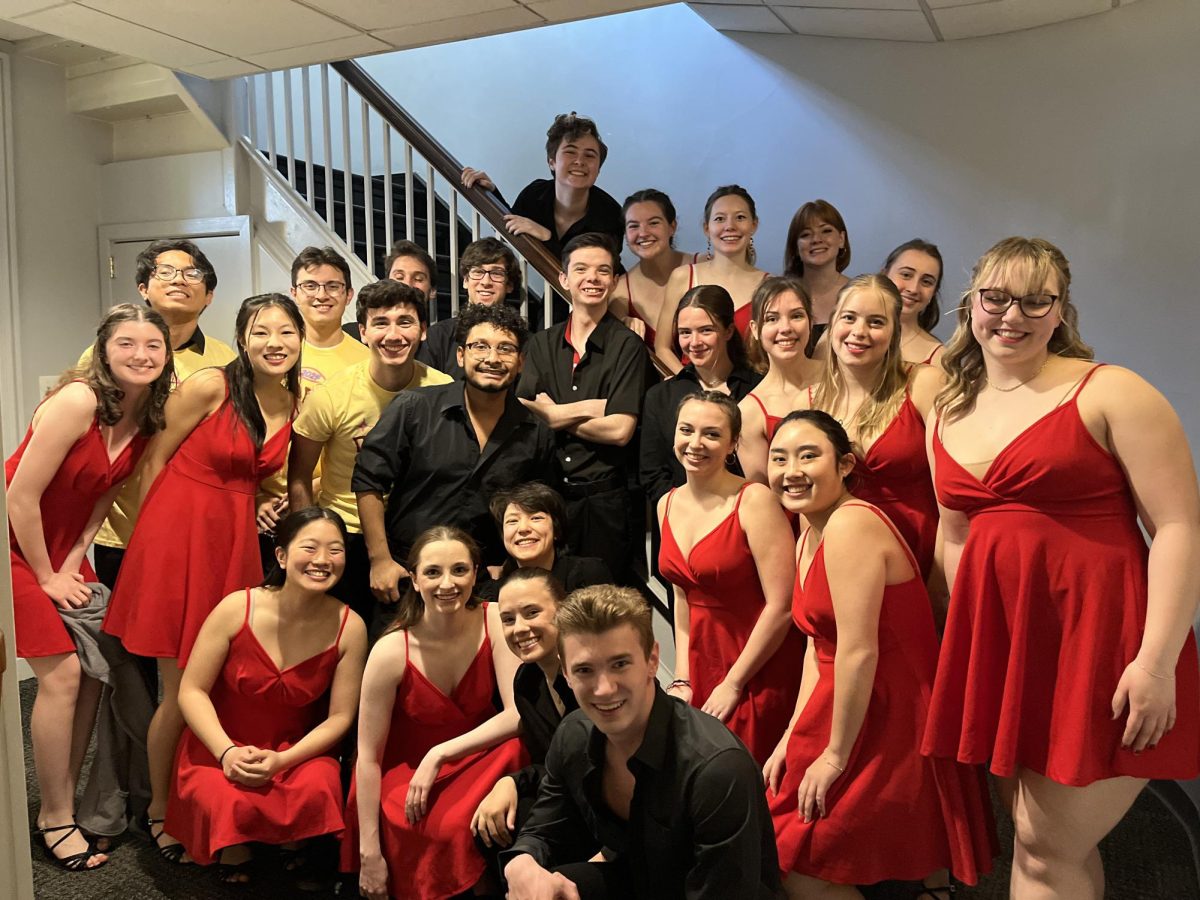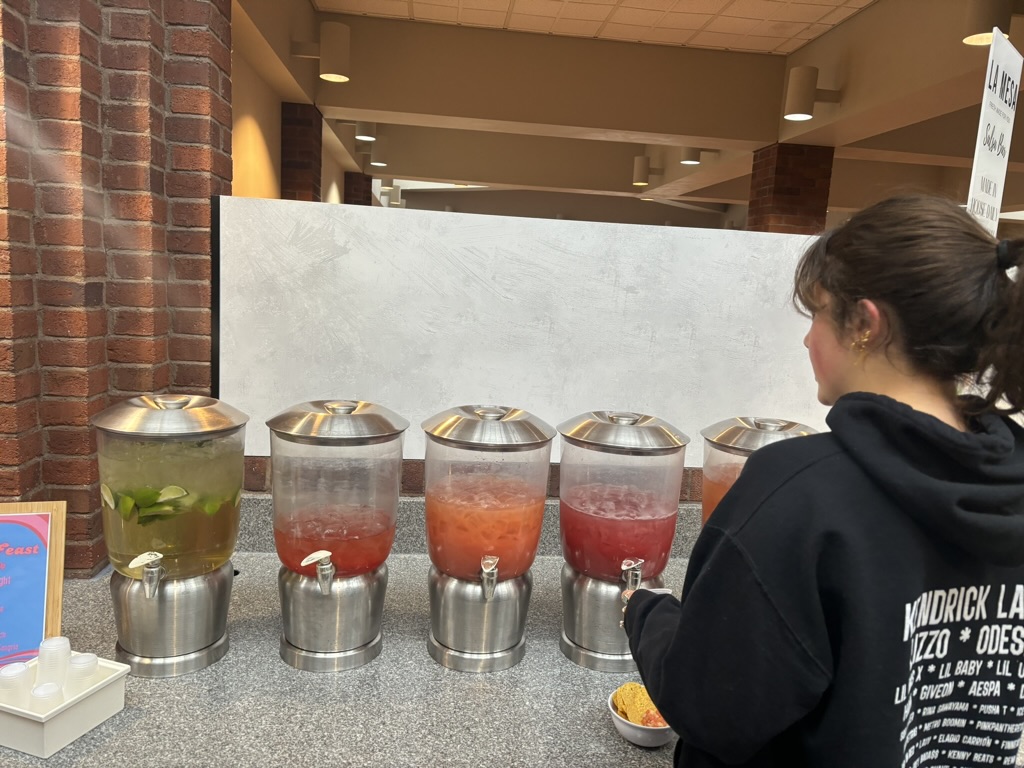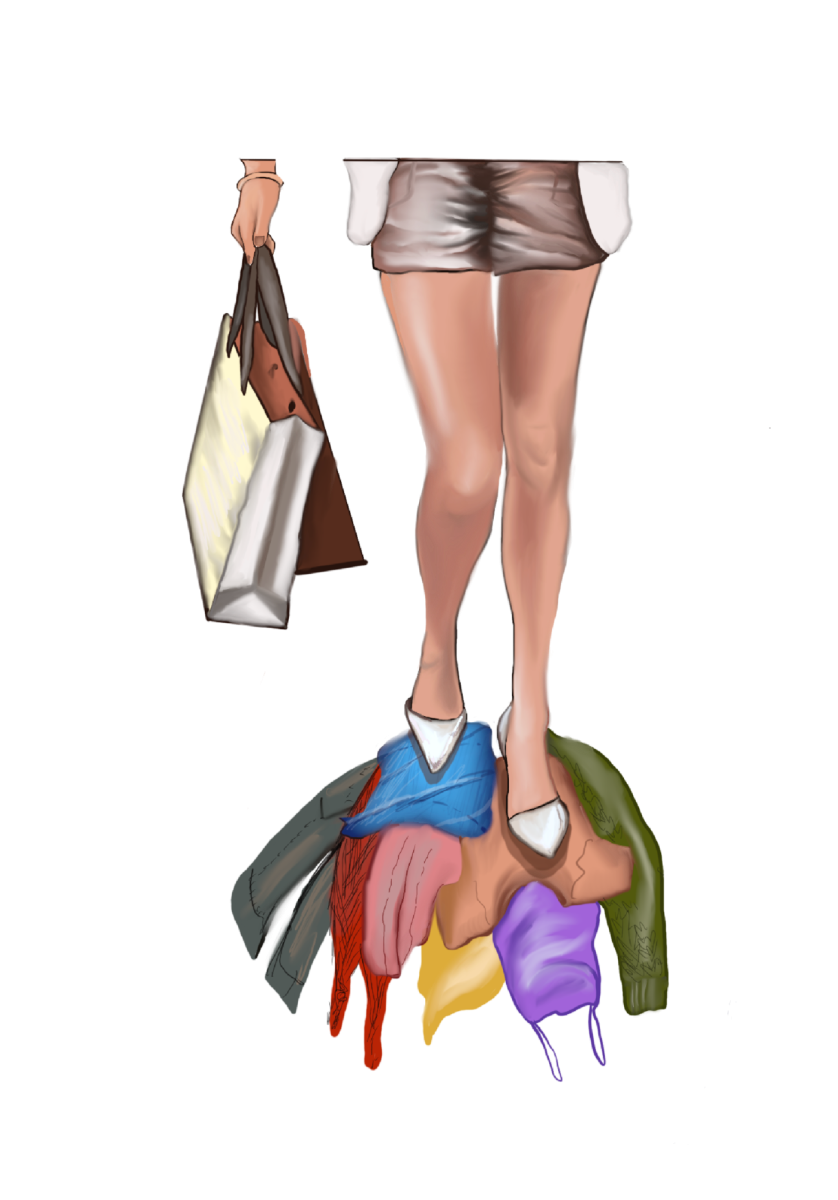Colgate University staff, students and community members gathered in Golden Auditorium on Monday, Sept. 25, to watch the 2012 experimental film “Leviathan” directed by Lucien Castaing-Taylor and Véréna Paravel. It follows a groundfish trawler — a type of fishing boat — on an extended expedition off of New Bedford, Massachusetts. New Bedford is the largest fishing port in the United States and the historical inspiration site for Herman Melville’s novel “Moby Dick.” The film uses experimental methods, providing a visceral and intimate look at the contemporary commercial fishing industry.
Senior Parna Shakouri attended the film for a sociology class.
“I thought that including the film in our syllabus was a unique pedagogical choice and different from anything else I have experienced at Colgate. Although I found watching it a challenge because of the gory visuals, I found it an important reminder that our perception of what daily life looks like can be obscured by ‘the Colgate bubble.’ Even within this bubble, our lives are not completely disconnected from the fishermen or the fishing industry at large. My biggest takeaway was to not forget the interconnection and interdependence of my life and the lives of people who live completely different realities,” Shakouri said.
The film uses an experimental filmography style, including the use of multiple GoPro cameras. This technique offers a unique perspective, ranging from the depths of the ocean to breathtaking bird’s-eye views. To some, this technique was disorienting. Several attendees of the screening even reported feeling sea sick.
Senior Emily McAllister, a film and media studies major with concentrations in sociology and philosophy, was among the audience members who left feeling dizzy.
“I felt the absence of a narrative or plot dissolved any possibility of the romanticization or glorification of this line of work, leaving viewers with the bare authentic reality of deep sea trawling. If the filmmaker had used any other mode of communication to describe life on the trawler, it would not have been as impactful or immersive. The camera work represents a wet, disorienting and dizzying existence, successfully inducing these sensations upon the viewers. When I stood up to leave the theater, I felt myself wobble a little,” McCalister said.
What’s particularly intriguing about “Leviathan” is its lack of dialogue. Despite the absence of spoken words, it manages to mesmerize and grip its audience from start to finish, presenting a surreal portrayal of one of humanity’s oldest endeavors: fishing.
Senior Aphone Paing was particularly impacted by this film.
“I thought the film took a pretty interesting perspective on the genre of ‘documentary.’ It felt realistic – raw, almost – on how it was shot in a fisherman’s [point of view]. The movie opened my eyes to how cruel the everyday could be. While we sit in our homes doing our daily task, others are in the pitch dark sea, working in hell to make money.”
Co-sponsored by the departments of sociology and anthropology, this screening was part of the “Alternative Cinema” showcase. For those interested in upcoming screenings, the film and media studies calendar can be found on the Colgate website.


